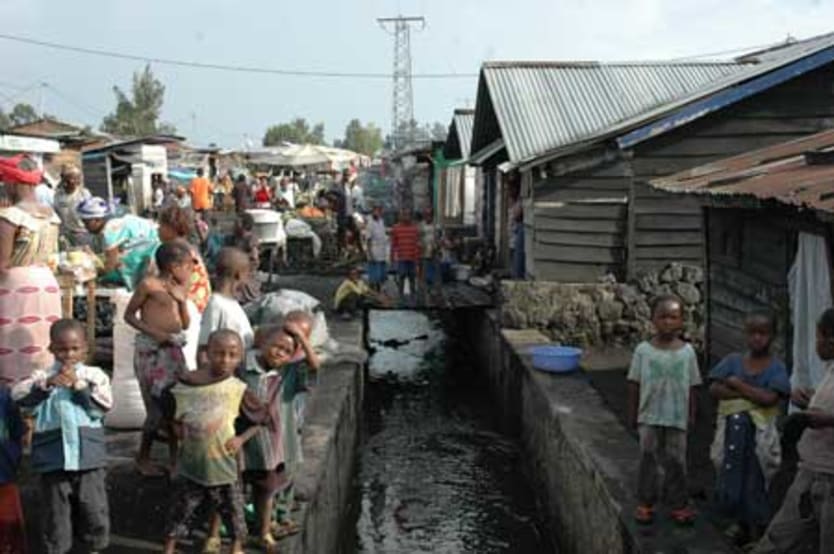
The need for better urban management is becoming more intense. More than half of the world’s population now live in cities, an effect of the massive urban growth in Asia, Africa and Latin America.
Between 2000 and 2005, cities of the developing world grew by 2.68 percent, more than four times the rate of 0.61 percent in wealthier global regions.
Urban planners are here to manage such growth and improve cities. They are versatile professionals that offer solutions to the economic, social, environmental and mobility issues faced by the urban world.
Rapid urbanization: A challenge for developing countries
Cities in the developing world are expanding at a pace never experienced in Europe or the United States. Megalopolises are multiplying. Today, there are around 400 cities that house more than a million people each, and 75 percent of these are located in low- and middle-income countries.
This rapid growth is not easy to absorb for cities in the developing world. New residents need proper transport, decent housing, and access to water and sanitation services. Rapid urbanization also produces pollution, traffic congestion, and even crime. It has also led to large-scale spreading of slums on city fringes.
This development has captured the attention of the international community. The United Nations Millennium Declaration sought to improve the lives of at least 100 million slum dwellers by 2020. All the major development banks have created their urban development section and have provided funding to projects to address challenges of rapid urbanization.
The role of urban planners
Urban planners aim to put order to “chaos” in cities and municipalities. They focus on organizing the use of land and city space. They also differentiate between existing cities and new ones that are expanding.
Interventions by urban planners are required in numerous occasions. These include infrastructure projects dealing with access to water, sewage, or transports; efforts addressing issues related to housing, urban mobility, public space organization and urban patrimony; and institutional programs entailing assistance to local authorities concerning public service delivery or space management.
“It is a very dynamic field,” according to Catherine Geisen-Kish, a planning specialist who worked as an urban planner for the city of Cartagena in Colombia.
She said urban planners may be involved in such activities as initial research, actual project planning, design review, environmental impact assessment, and stakeholder outreach.
Urban planning also appears to be a very versatile practice, feeding off from the professional experiences of architects, engineers, geographers, economists and sociologists.
“The position of an urban planner is more at the junction of different sectorial approaches,” said Marie Pierre Bourzai, an urban planner at the French Development Agency. “This multidisciplinary approach is greatly appreciated in emerging countries.”
But to be successful, urban planners cannot be generalists: They need to specialize in specific issues related to city planning and land use management.
“I don’t think there can be urban planners which can only present as urban planners without any specialization,” said Alain Bertaud, who worked for 20 years as a principal urban planner at the World Bank.
Urgent missions for urban planners
Urban mobility and transport have become prevalent themes in growing cities. Cities of developing countries could suffer an energy crisis but their current forms condemn them to a great dependency toward the use of cars.
Such situation prompts a demand for specialized urban planners.
“Since the future needs to be prepared now, I strongly believe in this sector,” Bourzai explained.
In cities of emerging countries, land development using public-private partnerships could become a trend. Housing construction, which had been neglected to some extent by funders for some time, has also resumed as a major field of action.
“In Senegal, Brazil or South Africa, this trend came back,” Bourzai said.
The concept of “city productivity” has also emerged. The way cities are organized spatially determines their productivity, and there is a need for planners who understand the economic forces that drive the use of land.
Climate change is a major concern for cities that massively consume energy. More and more, planners are asked to find ways for cities to become more sustainable and more respectful of the environment.
These issues are not really specific to the developing world, but they appear as urgent concerns for its cities.
“It is an error to think that there are some disciplines particular to developing countries like we believed few years ago,” remarked Bertaud, who has advised municipalities in four continents. “Moreover, the mayors of the major cities of the Third World do not appreciate to be treated differently. A big city is a big city.”
Different traditions of urban planning
Urban planning tools and methods differ by country and region. This is an important element that planners need to take into account.
“You need to understand in which tradition you are working,” explained Julio Davila, a consultant in urban development policy and co-director of Msc Development Administration and Planning at the University College of London’s Development Planning Unit. “You need to know about legislation, different parameters on how to plan things, on how to link up with infrastructure - all these things that are specific to a society.”
Former Commonwealth countries, for instance, employ principles by London-based Royal Town Planning Institute. In countries such as Malaysia, India, South Africa, Uganda and Zambia, planners are very likely to follow the British town planning principles. This tradition has a very strong physical planning dimension and focuses on segregated land use.
In Latin America, the language of architecture is very influential, so the physical and visual aspects are essential for planners.
The French approach, meanwhile, is much more politicized and encompasses elements of urban sociology. Francophone Africa and Brazil use this approach.
Municipalities also need people who are trained in their own language of urban planning.
As such, urban planners must be flexible and open-minded. They need to combine their multidisciplinary knowledge with an ability to adapt to different contexts and systems.
“It is necessary to be interested in other cultures and to avoid establishing hierarchies between them,” Bertaud said. “You need to be able to go from one system to another. It is very important in this sector; it allows you not to suffer when you work.”
Search for articles
Most Read
- 1
- 2
- 3
- 4
- 5








